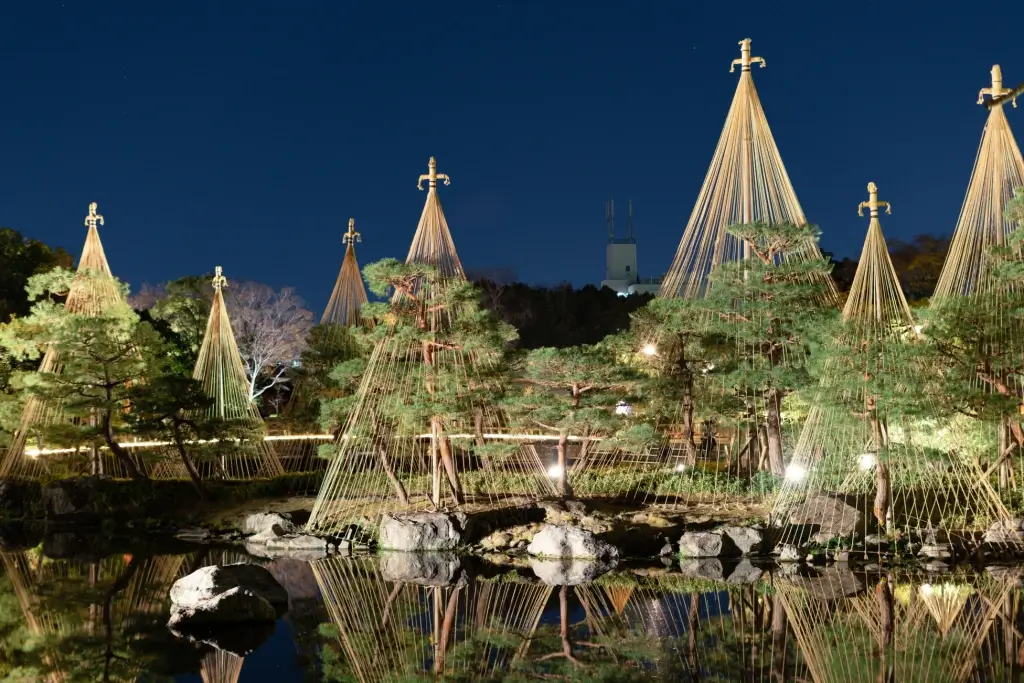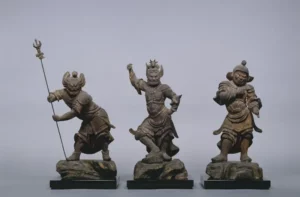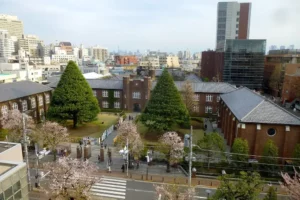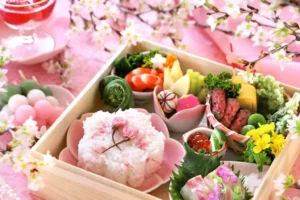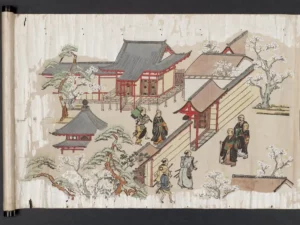The Chubu Region is a destination of history, culture, and natural beauty. It includes famous prefectures like Nagoya, Niigata, and Shizuoka. The region is famous for its delicious cuisine and hot springs! If you’re looking for cultural immersion, outdoor adventures, or a culinary journey, Chubu has something for everyone!
Table of Contents
ToggleNiigata
Niigata offers a range of attractions throughout the year. Visitors can enjoy the cherry blossoms at Toki Forest Park or along the Shinano River in spring. Summer brings the Sado Island festival, with dances and beaches. Autumn is perfect for exploring Kiyotsu Gorge and Mount Myoko, where the fall foliage creates breathtaking views. Winter’s highlight is the Snow Festival, featuring ice sculptures, traditional games, and light displays.

The Niigata Customs House, a blend of Western and Japanese architecture, stands as a symbol of the region. Kiyotsu Gorge is a natural marvel with its cliffs and crystal-clear waters, offering scenic views along walking paths. Sado Island is another must-visit, known for its historic gold mine and the annual Ogi Peninsula Festival. For relaxation, Tsukioka Onsen is a popular hot spring resort famous for its healing waters and traditional inns.
Toyama
Toyama Prefecture offers natural beauty, cultural heritage, and artistic attractions. One of its top destinations is Kurobe Dam, where visitors can take scenic walks boat rides, and witness water discharges. The Toyama Glass Art Museum is another must-see, featuring modern glass exhibits and works by artists. Visitors can also explore Ainokura Gassho Community, a historical village with traditional thatched-roof farmhouses and workshops.
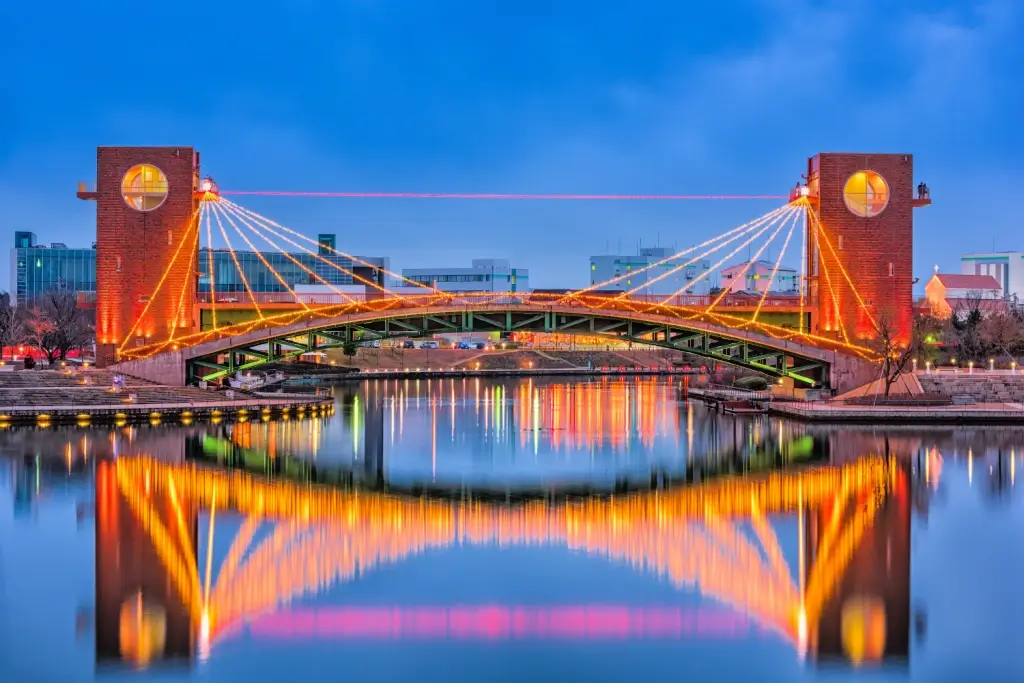
The prefecture also has Tonami Tulip Park, which hosts the Tonami Tulip Fair each spring, showcasing millions of colorful tulips and flower-related events. Fugan Unga Kansui Park, with its iconic Tenmon-Kyo Bridge and serene canal, offers peaceful boat rides and seasonal festivals. The prefecture’s culture is reflected in its traditional crafts and lively festivals that invite visitors to engage with local life.
Ishikawa
Ishikawa Prefecture is a beautiful area known for its rich history, traditional crafts, and natural wonders. Visitors can explore the city of Kanazawa, home to the Kenrokuen Garden, samurai districts, and gold leaf art. Kaga City offers four hot spring villages and views of the Sea of Japan and the Hakusan Mountain Range. The prefecture also has treasures like Kutani-yaki ceramics, which are showcased at the Kutani Yaki Art Museum.
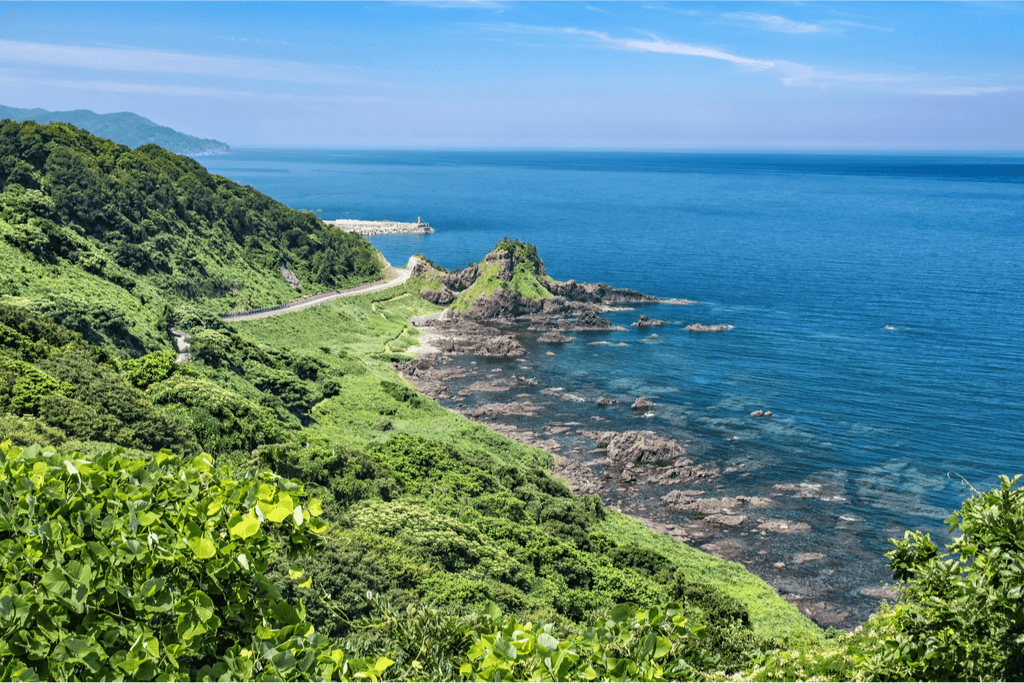
It’s the perfect destination for those interested in nature and culture. Yamanaka Onsen, a charming hot spring village, offers performances and lacquerware. Outdoor enthusiasts can hike Mount Haku for views and unique wildlife. Mount Haku’s hiking trails allow visitors to experience the region’s beauty. With hot springs, historical sites, and artisanal crafts, Ishikawa Prefecture promises a memorable travel experience!
Fukui
About 80% of Japan’s dinosaur fossils have been discovered in Fukui Prefecture. The Fukui Prefectural Dinosaur Museum showcases 50 complete dinosaur skeletons and exhibits. Visitors can also explore the Field Station, where they can participate in a fossil excavation adventure. The museum is in Katsuyama Dinosaur Forest Park, filled with dinosaur models and relaxing outdoor spaces.
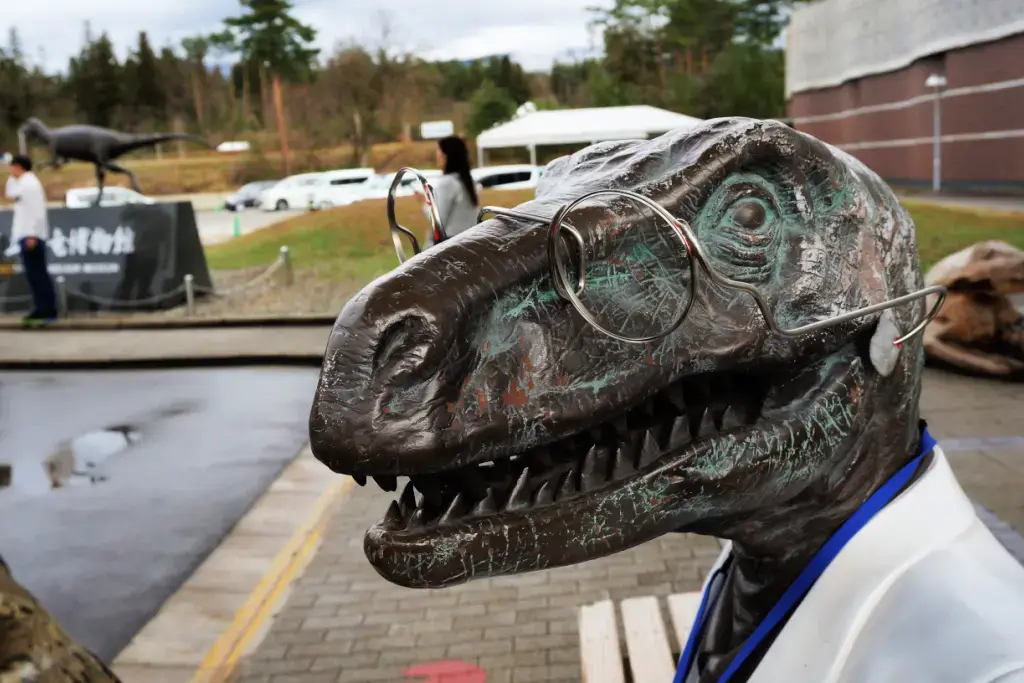
Fukui’s connection to dinosaurs began in the 1980s when fossils were first discovered in the region’s Kitadani Formation. Today, the dinosaur museum provides an educational experience, allowing visitors to learn about Earth’s history and evolution. The museum’s gift shop offers dinosaur-themed souvenirs, while the Dino Café serves dino-inspired treats. Fukui is the perfect place to explore Japan’s prehistoric past!
Yamanashi
Yamanashi Prefecture is home to the natural landscapes of Mount Fuji and the Fuji Five Lakes. Visitors can explore the Narusawa Ice Cave, a year-round cold lava tube with ice pillars, and the Chureito Pagoda, which offers breathtaking views of Mount Fuji. Yamanashi also has wine, with Sadoya Winery offering wine tastings and tours. Visitors can enjoy fruit picking at Nakagomi Fruit Orchard, which grows fruits yearly.
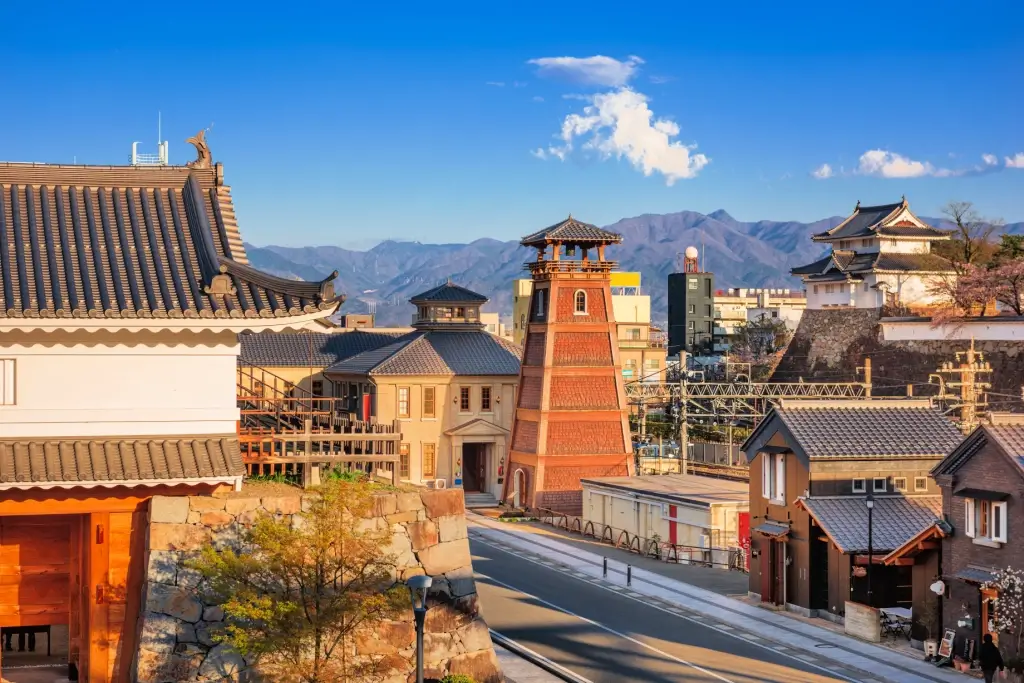
Yamanashi is renowned as Japan’s fruit-producing heartland, with its climate ideal for growing cherries, peaches, grapes, and more. The prefecture also hosts the beautiful Maple Corridor, a popular spot to see vibrant red and gold leaves during the annual autumn festival. From peaceful temples to sophisticated wineries, Yamanashi is a must-visit destination for travelers seeking a unique side of Japan!
Nagano
Nagano Prefecture is known for its delicious and hearty cuisine. A popular dish is oyaki dumplings, made from buckwheat dough and filled with pumpkin or mushrooms, then grilled and steamed to perfection. Another favorite is gohei mochi, a rice snack with sweet miso and walnut sauce, enjoyed at festivals. Shinshu miso ramen, featuring a rich broth made with locally produced miso, offers a warm, comforting meal in cold weather.
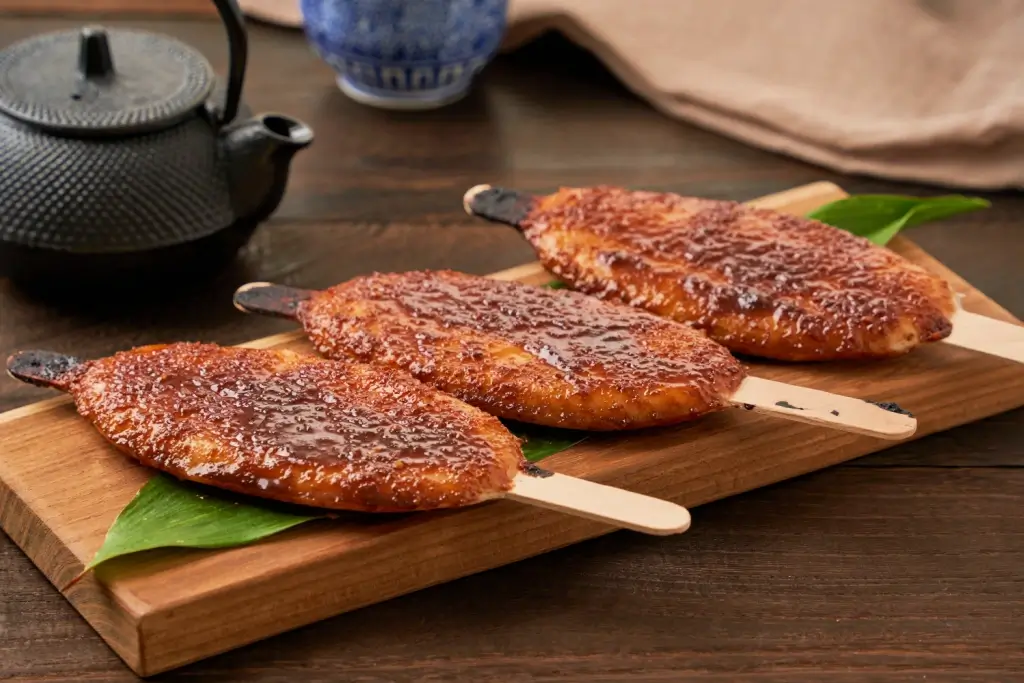
Nagano’s natural environment also plays a big role in its food, with locals foraging for mountain vegetables like bamboo shoots and wild greens. Another unique offering is horse meat, or basashi, which is eaten raw and has a slightly sweet flavor. The region’s take on fried chicken, sanzoku-yaki, is marinated in soy sauce, garlic, and ginger. Each dish uses local ingredients to create flavors that reflect Nagano’s heritage!
Gifu
Gifu Prefecture has historical landmarks, beautiful scenery, and traditional onsens. One of its top attractions is Shirakawa-go, a UNESCO World Heritage site featuring Gassho-Zukuri farmhouses designed to withstand heavy snow. The Hida Folk Village in Takayama is a great spot to explore houses from the Edo period, offering hands-on craft experiences. Visitors can also see the dry lacquer Buddha statue at Shobo-ji Temple.
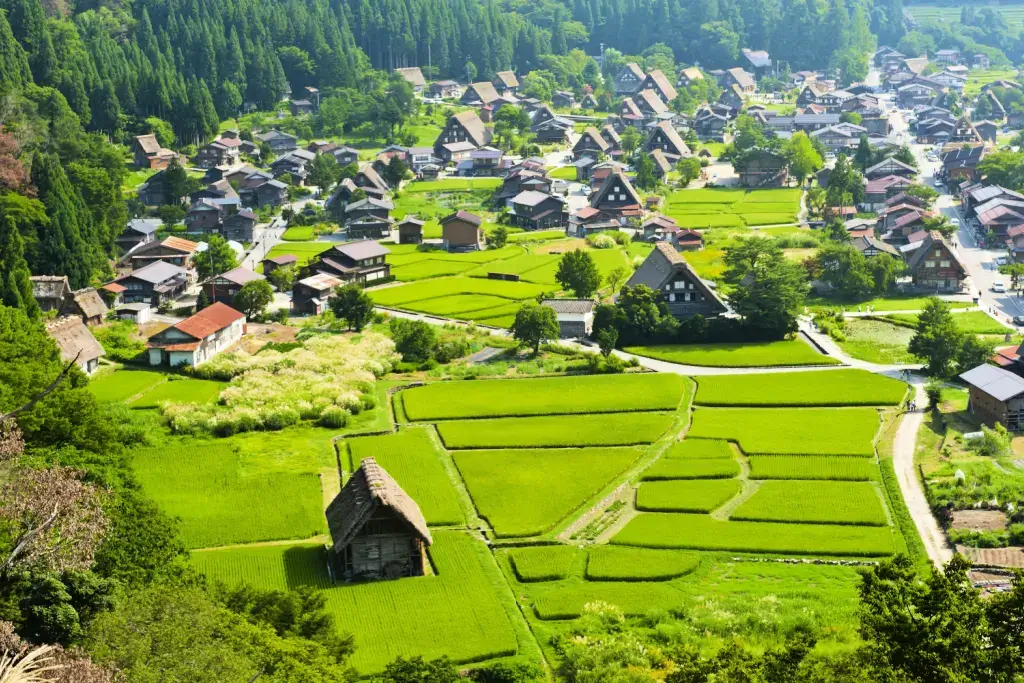
Gifu offers cultural experiences like the Mishima Japanese Candle Shop, where you can craft traditional plant-based candles. For relaxation, Gero Onsen is famous for its healing hot springs and outdoor baths along the river. The region’s attractions allow visitors to explore architecture, enjoy the Japanese Alps, and unwind in hot springs. Gifu’s combination of history, culture, and nature makes it a perfect destination for travelers.
Shizuoka
Shizuoka Prefecture is a popular destination known for its views of Mount Fuji and natural attractions. Visitors can relax on Atami Sun Beach, explore Mount Omuro, or interact with marine life at Shimoda Floating Aquarium. Shizuoka also offers cultural experiences like Tenku no Chanoma, a mountaintop teahouse with breathtaking views of the Pacific Ocean, and Kuno Ishigaki Strawberry Farm, where visitors can pick fresh strawberries by the sea.
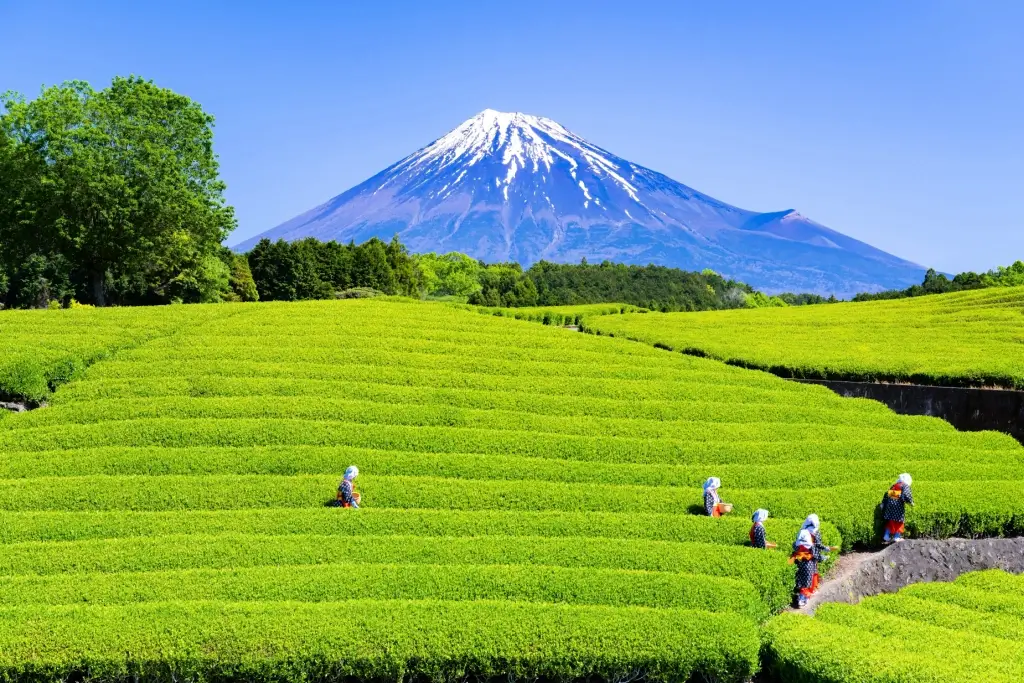
People love Shizuoka for its natural beauty and cultural charm. The prefecture is famous for its tea plantations, coastal landscapes, and relaxing hot springs, making it a great escape from city life. Whether hiking, relaxing on the beach, or exploring local delicacies like fresh seafood and green tea, Shizuoka offers something for everyone. Its mild climate and convenient location make it a perfect destination for both short trips and longer stays.
Aichi
Kiyosu Castle is a historical landmark in Aichi Prefecture and a venue for seasonal festivals, and Toyokawa Inari Temple features stone fox statues. Visitors can explore the Tokugawa Garden, famous for its koi-filled lake, and the Tokugawa Art Museum, which showcases samurai artifacts. Aichi is famous for Hatcho miso, which is used in traditional dishes like miso katsu and miso nikomi udon.
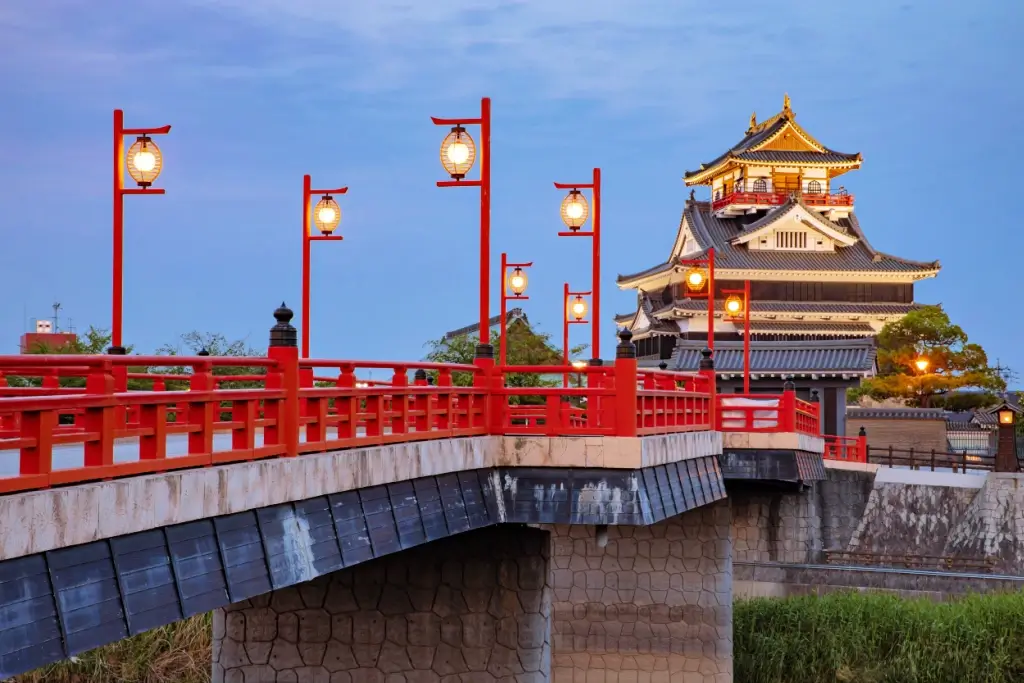
Aichi’s legacy stretches from traditional karakuri dolls to modern automobile manufacturing. The prefecture is home to Toyota, one of Japan’s leading industrial manufacturers, and the Toyota Automobile Museum, where visitors can learn about the history of car production and advanced automotive technology. Overall, Aichi offers a well-rounded experience for travelers!
Why are places like Nagoya in the Chubu region so interesting?
The Chubu region is appealing due to its landscapes, including Mount Fuji, the Japanese Alps, and beautiful coastlines. It offers the Kurobe Dam and Shirakawa-go and hubs like Kanazawa and Nagoya. The region’s history is present in Nagoya Castle and the samurai districts of Kanazawa. The hot springs in Gero, Yamanaka, and Tsukioka offer refreshing retreats for those seeking relaxation.
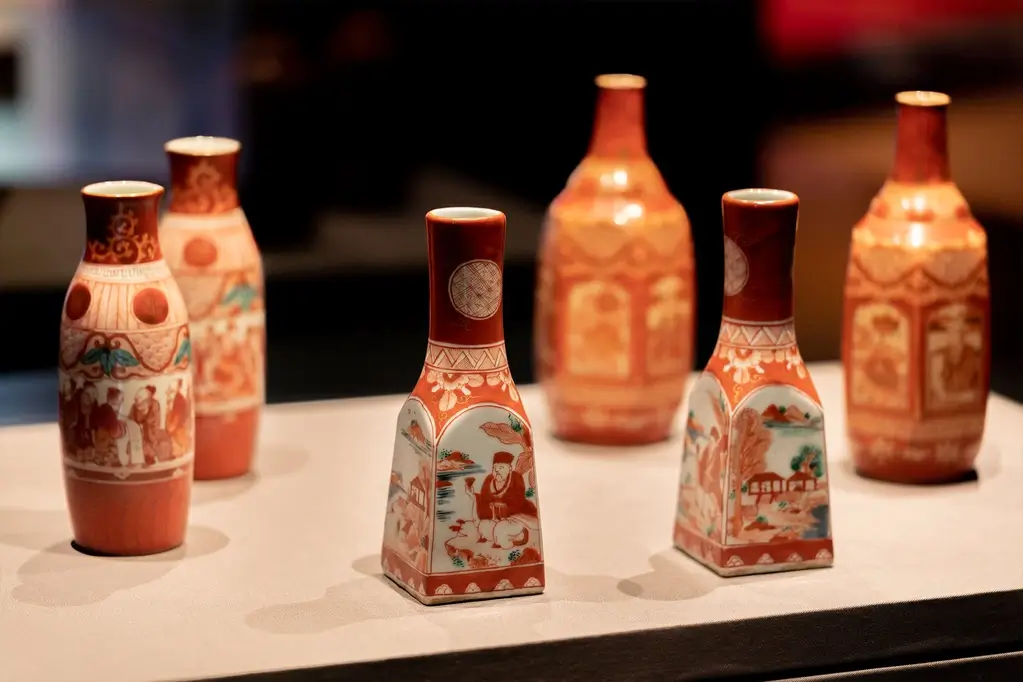
Visitors can explore historical sites like Toyokawa Inari Temple while discovering Japan’s automotive legacy at the Toyota Museum. The region is also home to traditional crafts, including Kutani-yaki ceramics and Echizen pottery. Culinary delights like Hida beef and Shinshu miso ramen add to Chubu’s appeal. The combination of history, culture, modernity, and natural beauty makes Chubu a region that captivates travelers. Have you ever been to the Chubu Region? What was your favorite spot? Let us know in the comments below!

